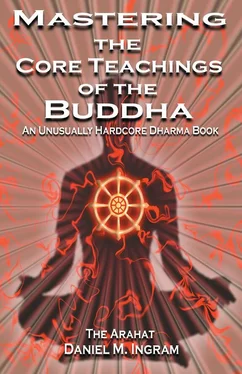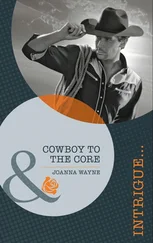Daniel Ingram - Mastering the Core Teachings of Buddha - An Unusually Hardcore Dharma Book
Здесь есть возможность читать онлайн «Daniel Ingram - Mastering the Core Teachings of Buddha - An Unusually Hardcore Dharma Book» весь текст электронной книги совершенно бесплатно (целиком полную версию без сокращений). В некоторых случаях можно слушать аудио, скачать через торрент в формате fb2 и присутствует краткое содержание. Год выпуска: 2009, ISBN: 2009, Издательство: Aeon Books, Жанр: Старинная литература, на русском языке. Описание произведения, (предисловие) а так же отзывы посетителей доступны на портале библиотеки ЛибКат.
- Название:Mastering the Core Teachings of Buddha - An Unusually Hardcore Dharma Book
- Автор:
- Издательство:Aeon Books
- Жанр:
- Год:2009
- ISBN:9781904658405
- Рейтинг книги:5 / 5. Голосов: 1
-
Избранное:Добавить в избранное
- Отзывы:
-
Ваша оценка:
- 100
- 1
- 2
- 3
- 4
- 5
Mastering the Core Teachings of Buddha - An Unusually Hardcore Dharma Book: краткое содержание, описание и аннотация
Предлагаем к чтению аннотацию, описание, краткое содержание или предисловие (зависит от того, что написал сам автор книги «Mastering the Core Teachings of Buddha - An Unusually Hardcore Dharma Book»). Если вы не нашли необходимую информацию о книге — напишите в комментариях, мы постараемся отыскать её.
Mastering the Core Teachings of Buddha - An Unusually Hardcore Dharma Book — читать онлайн бесплатно полную книгу (весь текст) целиком
Ниже представлен текст книги, разбитый по страницам. Система сохранения места последней прочитанной страницы, позволяет с удобством читать онлайн бесплатно книгу «Mastering the Core Teachings of Buddha - An Unusually Hardcore Dharma Book», без необходимости каждый раз заново искать на чём Вы остановились. Поставьте закладку, и сможете в любой момент перейти на страницу, на которой закончили чтение.
Интервал:
Закладка:
For the sake of discussion, and in keeping with standard Buddhist thought, awareness is permanent and unchanging. It is also said that,
“All things arise from it, and all things return to it,” though again this implies a false certainty about something which is actually impenetrably mysterious and mixing the concept of infinite potential with awareness is a notoriously dangerous business. We could call it “God,” “Nirvana,”
“The Tao,” “The Void,” “Allah,” “Krishna,” “Intrinsic Luminosity,”
“Buddha Nature,” “Buddha,” “Bubba” or just “awareness” as long as we realize the above caveats, especially that it is not a thing or localized in any particular place and has no definable qualities. Awareness is sometimes conceptualized as pervading all of this while not being all of this, and sometimes conceptualized as being inherent in all of this while not being anything in particular. Neither is quite true, though both perspectives can be useful.
If you find yourself adopting any fixed idea about what we are calling
“awareness” here, try also adopting its logical opposite to try to achieve some sense of direct inquisitive paradoxical imbalance that shakes fixed views about this stuff and points to something beyond these limited concepts. This is incredibly useful advice for dealing with all teachings about “Ultimate Reality.” I would also recommend looking into the true nature of the sensations that make up philosophical speculation and all sensations of questioning.
155
No-self vs. True Self
While phenomena are in flux from their arising to their passing, there is awareness of them. Thus, awareness is not these objects, as it is not a thing, nor is it separate from these objects, as there would be no experience if this were so. By examining our reality just as it is, we may come to understand this.
Further, phenomena do not exist in the sense of abiding in a fixed way for any length of time, and thus are utterly transitory, and yet the laws that govern the functioning of this utter transience hold. That phenomena do not exist does not mean that there is not a reality, but that this reality is completely inconstant, except for awareness, which is not a thing. This makes no sense to the rational mind, but that is how it is with this stuff.
One teaching that comes out of the Theravada that can be helpful is that there are Three Ultimate Dharmas or ultimate aspects of reality: materiali ty (the sensations of the first five sense doors), mentalit y (all mental sensations) and Ni rvana (though they would call it “Nibbana,”
which is the Pali equivalent of the Sanskrit). In short, this is actually it, and “that” which is beyond this is also it. Notice that “awareness” is definitely not on this list. It might be conceptualized as being all three (from a True Self point of view), or quickly discarded as being a useless concept that solidifies a sense of a separate or localized “watcher” (from the no-self point of view).
Buddhism also contains a strangely large number of True Self teachings, though if you told most Buddhists this they would give you a good scolding. Many of these have their origins in Hindu Vedanta and Hindu Tantra. All the talk of Buddha Nature, the Bodhisattva Vow, and that sort of thing are True Self teachings. True Self teachings point out that this “awareness” is “who we are,” but it isn’t a thing, so it is not self.
They also point out that we actually are all these phenomena, rather than all of these phenomena being seen as something observed and thus not self, which they are also as they are utterly transient and not awareness. This teaching can help students actually examine their reality just as it is and sort of “inhabit it” in a honest and realistic way, or it can cause them to cling to things as “self” if they misunderstand this teaching. I will try again...
156
No-self vs. True Self
You see, as all phenomena are observed, they cannot possibly be the observer. Thus, the observer, which is awareness and not any of the phenomena pretending to be it, cannot possibly be a phenomenon and thus is not localized and doesn’t exist. This is no-self. However, all of these phenomena are actually us from the point of view of non-duality and interconnectedness, as the illusion of duality is just an illusion.
When the illusion of duality permanently collapses in final awakening, all that is left is all of these phenomena, which is True Self, i.e. the lack of a separate self and thus just all of this as it is. Remember, however, that no phenomena abide for even an instant, and so are empty of permanent abiding and thus of stable existence.
This all brings me to one of my favorite words, “non-dual,” a word that means that both duality and unity fail to clearly describe ultimate reality. As “awareness” is in some way separate from and unaffected by phenomena, we can’t say that that unity is the true answer. Unitive experiences arise out of strong concentration and can easily fool people into thinking they are the final answer. They are not.
That said, it is because “awareness” is not a phenomena, thing or localized in any place that you can’t say that duality is true. A duality implies something on both sides, an observer and an observed.
However, there is no phenomenal observer, so duality does not hold up under careful investigation. Until we have a lot of fundamental insight, the sense that duality is true can be very compelling and can cause all sorts of trouble. We extrapolate false dualities from sensations until we are very highly enlightened.
Thus, the word “non-dual” is an inherently paradoxical term, one that confounds reason and even our current experience of reality. If we accept the working hypothesis that non-duality is true, then we will be able to continue to reject both unitive and dualistic experiences as the true answer and continue to work towards awakening. This is probably the most practical application of discussions of no-self and True Self.
No-self and True Self are really just two sides of the same coin.
There is a great little poem by one Kalu Rinpoche that goes something like:
We live in illusion
And the appearance of things.
157
No-self vs. True Self
There is a reality:
We are that reality.
When you understand this,
You will see that you are nothing.
And, being nothing,
You are everything.
That is all.
There are many fine poems on similar themes presented in Sogyal Rinpoche’s The Tibetan Book of Living and Dying. It is because we are none of this that freedom is possible. It is because we are all of this that compassionate action for all beings and ourselves is so important. To truly understand this moment is to truly understand both, which is the Middle Way between these two extremes (see Nisargadatta’s I Am That for a very down-to-earth discussion of these issues). While only insight practices will accomplish this, there are some concentration attainments (the last four jhanas or Formless Realms) that can really help put things in proper perspective, though they do not directly cause deep insights and awakening unless the true nature of the sensations that make them up is understood.
158
Mastering the Core Teachings of the Buddha
23.THE FORMLESS REALMS
The formless realms never fail to impress and amaze. They can also be taken to be much more significant than they really are. The trick is to come to a balanced understanding of what they are and what they aren’t, what they are useful for and what they do not accomplish. This is not always easy.
BOUNDLESS SPACE, THE FIFTH JHANA
To attain this state, one simply continues to cultivate the fourth jhana and begins to not pay attention to the objects in the meditation space but gently to space itself. How big is reality? Tuning into the panoramic quality of attention itself when in the fourth jhana can be very helpful. This is quite a fine line, but it can definitely be done.
Читать дальшеИнтервал:
Закладка:
Похожие книги на «Mastering the Core Teachings of Buddha - An Unusually Hardcore Dharma Book»
Представляем Вашему вниманию похожие книги на «Mastering the Core Teachings of Buddha - An Unusually Hardcore Dharma Book» списком для выбора. Мы отобрали схожую по названию и смыслу литературу в надежде предоставить читателям больше вариантов отыскать новые, интересные, ещё непрочитанные произведения.
Обсуждение, отзывы о книге «Mastering the Core Teachings of Buddha - An Unusually Hardcore Dharma Book» и просто собственные мнения читателей. Оставьте ваши комментарии, напишите, что Вы думаете о произведении, его смысле или главных героях. Укажите что конкретно понравилось, а что нет, и почему Вы так считаете.












